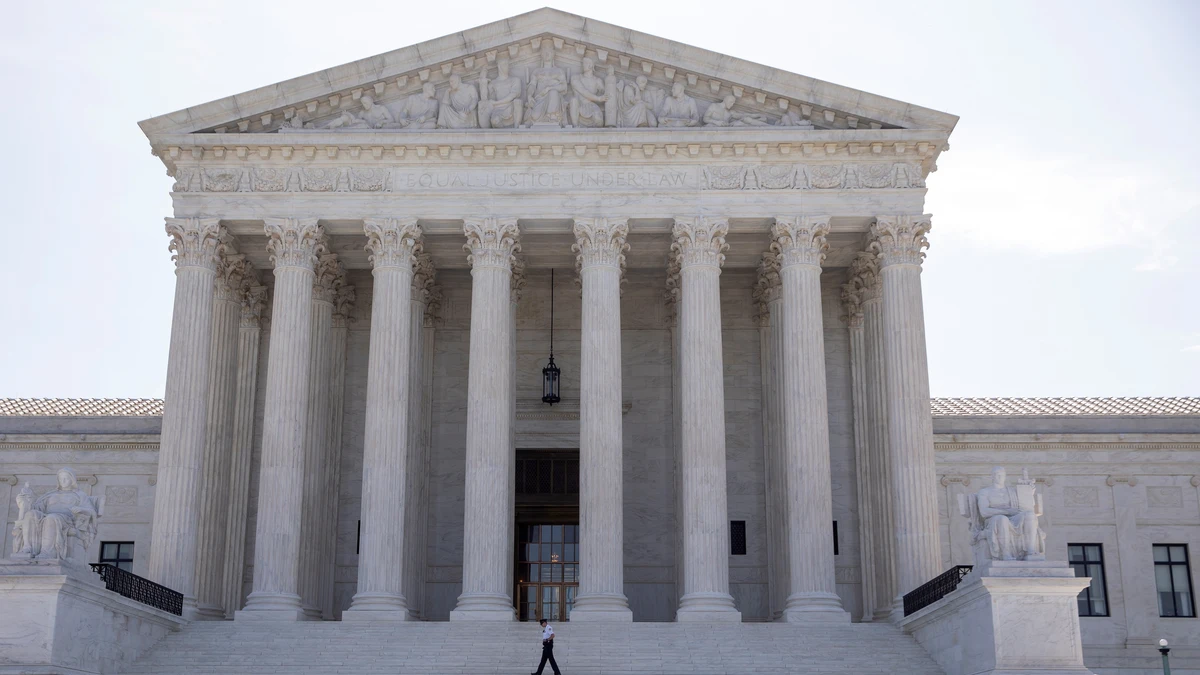
The justices of the Supreme Court of the United States appeared this Tuesday divided about the appto a participant in the assault on Congress in 2021 of a law whose interpretation could affect one of the trials that besiege the former president Donald Trump.
At the hearing of arguments, the most progressive judges, in the minority, They supported the Justice Department’s position that the defendant, Jospeh Fischer, was involved in an attempt to disrupt the formalization of Democratic candidate Joe Biden’s election victory.
Fischer, a former Pennsylvania police officer, is one of the more than 300 individuals charged by the Government for obstruction of the official processalong with other crimes, when a crowd broke in violently at the Capitol and temporarily interrupted the certification of the scrutiny of the November 2020 elections.
The most conservative magistrates expressed doubts about whether a 2002 law can be used in this case. which penalizes the destruction or adulteration of evidence and the obstruction of official procedures.
The Justice Department, which alleges that Fischer’s unauthorized presence inside the Capitol building prevented the certification of the election result, has obtained convictions or admissions of guilt for more than 150 participants in the riot. Special Prosecutor Jack Smith, who is conducting the investigation of Trump’s responsibility in the riothas also included obstruction of an official procedure among the four charges against the now virtual Republican presidential candidate Donald Trump.
Fischer alleges that the government’s interpretation of the law is too broad and unprecedentedand maintains that the obstruction of official process clause should apply only to the destruction or adulteration of evidence in cases of financial crimes to which the law originally referred.
The 2002 law that is doubted
That legislation, known as the Sarbanes-Oxley Act and enacted in 2002, it was the response to the financial scandal and accountant for the energy company Enron whose executives were accused of fraud. The firm ended up in bankruptcy.
So far 14 of the 15 federal judges in the District of Columbia who have heard cases involving participants in the assault, charged with obstruction of an official proceeding, have allowed the application of that legislation. Prosecutors have indicated that before the attack on the Capitol, Fischer had sent digital messages in which he told people he knew that members of Congress “can’t vote if they’re not breathing,” and that he might need his police chief to “I will pay bail because there may be violence.”
Likewise, the Prosecutor’s Office maintains that Fischer incited other assailants to “will carry and hold the line“, and that he was part of the crowd that pushed the Capitol police. Fischer alleges that he arrived at the Capitol after the joint session of Congress, which was to certify the electoral count, had gone into recess, and that he was inside the building just for a few minutes.
Source: Lasexta
Ricardo is a renowned author and journalist, known for his exceptional writing on top-news stories. He currently works as a writer at the 247 News Agency, where he is known for his ability to deliver breaking news and insightful analysis on the most pressing issues of the day.












